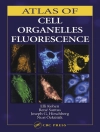This pocket book explains the significant and well-documented impact that PET/CT can have on the management of prostate cancer through the provision of high-quality evidence regarding function and structure. Up-to-date information is supplied on the relevance of PET/CT to diagnosis, treatment planning, and therapy, including the emerging role of PET/CT with PSMA. Readers will also find clear explanation of the relation of the clinical and pathological background to imaging and the value of PET/CT compared with conventional radiological imaging. The book will be an excellent asset for referring clinicians, nuclear medicine/radiology physicians, radiographers/technologists, and nurses who routinely work in nuclear medicine and participate in multidisciplinary meetings. It is published within the Springer series Clinicians’ Guides to Radionuclide Hybrid Imaging, which presents contributions from professionals worldwide who share a common purpose in promoting nuclear medicine asan important imaging specialty for the diagnosis and management of oncological and non-oncological conditions.
Table des matières
Epidemiology and Clinical Features of Prostate cancer.- Pathology of prostate cancer.- Management of Prostate Cancer.- Prostate cancer: Radiological Imaging.- The Role of PET/CT in Prostate Cancer Management.- Role of radiolabelled small molecules binding to PSMA in diagnosis and therapy of prostate cancer.- PET/CT in radiotherapy planning: current evidence in prostate cancer.
A propos de l’auteur
Gary Cook is Professor of PET Imaging in the King’s College London and Guy’s & St Thomas’ PET Centre, the head of the Cancer Imaging Department in the Division of Imaging Sciences and Biomedical Engineering, King’s College London, and an honorary consultant at Guy’s & St Thomas’ Hospitals, London, UK. He is a member of the Guy’s and St Thomas’ Hospitals prostate cancer multidisciplinary team, imaging lead for the King’s Health Partners Prostate Cancer Research group, and a member of the UK National Cancer Research Institute Prostate Cancer Clinical Studies Group.












